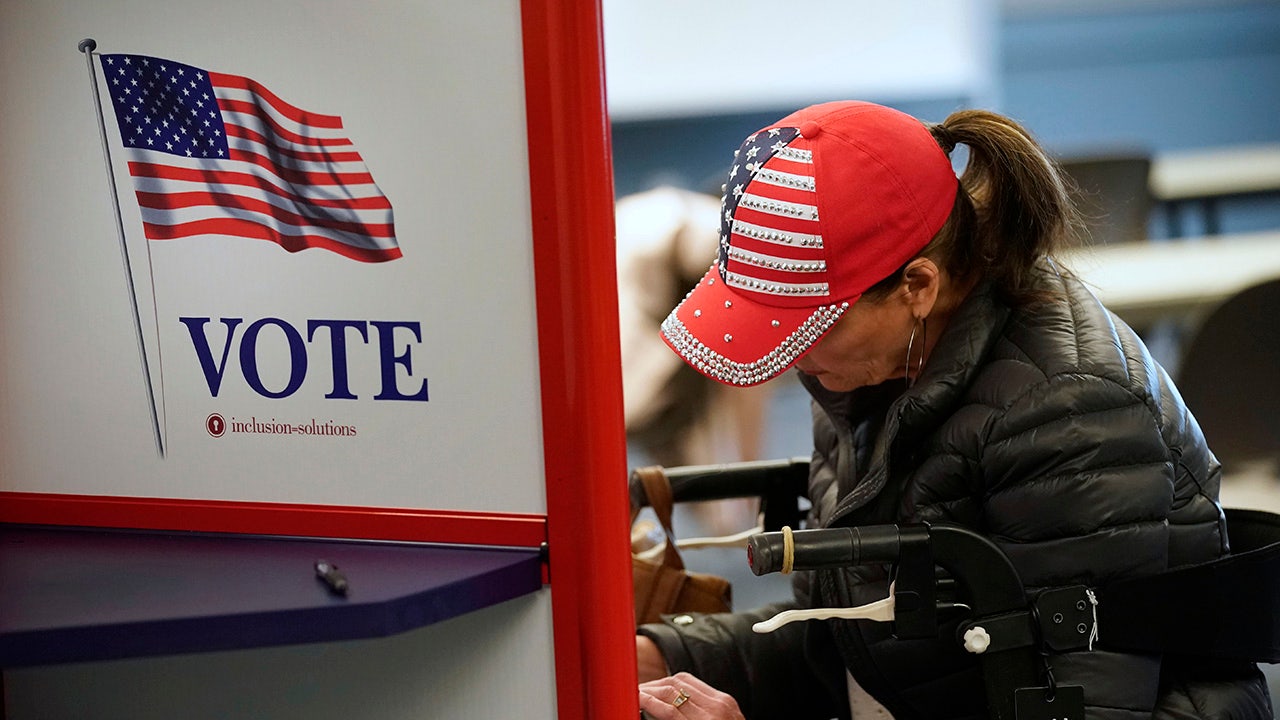NEWYou can now listen to Fox News articles!
As large tech companies continue to take the lead implementing artificial intelligence (AI) into their platforms and workplaces, the latest Fox News national survey finds that while positive reviews of AI have increased, many remain skeptical about its role in society.
The survey, released Thursday, finds 43% view AI technology as a good thing for society, up 5 points from April 2023. Still, nearly half of voters, 47%, think AI is bad for society — about where it was two years ago (46% bad in April 2023).
FOX NEWS POLL: 6 IN 10 ARE PROUD OF US TODAY – THE MOST IN MORE THAN A DECADE
Overall, urban voters (60%), nonwhite voters (56%), voters under age 45 (53%), and men (52%) are those most likely to say AI is a good thing, while rural voters (55%), White voters (51%), voters ages 45 and over (49%), and women (55%) are likely to say it’s a bad thing.
Views are mixed among Democrats (44% good, 46% bad), while Republicans are more likely to say AI is good (47%, 42%). A majority of Independents think it’s bad (34% good vs. 58% bad).
When voters are asked what their first reaction is to AI, without the aid of a list, 43% offer a negative response, up 8 points since 2023. The most common answers include fear (15%), distrust (15%), or general negativity (13%). Only 3% of voters say the possibility that AI will threaten jobs is their first reaction.
Positive feelings also increased, as 26% react warmly, up 8 points since 2023. Those responses include innovation (11%), general positivity (10%), and cautious optimism (5%).
FOX NEWS POLL: VOTERS VIEW LEGAL IMMIGRATION AS HELPFUL, FAVOR DEPORTING THOSE WHO ARE HERE ILLEGALLY
Others have mixed feelings about AI (9%), or point out the potential for abuse (4%), confusion surrounding AI (2%), the need for regulation (2%), privacy concerns (2%), the similarity between AI to science fiction (1%), and the need for more research (1%).
“Voters are all over the map when it comes to artificial intelligence,” says Republican pollster Daron Shaw, who conducts the Fox News survey with Democrat Chris Anderson. “But there has been a slight increase in comfort and positivity as people come to grips with a world with A.I.”
Overall, 27% say they use AI platforms regularly, either daily (11%) or weekly (16%), while another 15% say monthly. A majority (57%) says they use it rarely (19%) or never (38%).
Those most likely to use AI regularly are nonwhite men (48% daily/weekly), Hispanic voters (45%), urban voters (43%), and voters under age 45 (40%). Those least likely are rural voters (13% daily/weekly), Independents (15%), women ages 45 and over (16%), and Whites without a degree (17%).
Voters who see AI as bad for society are more likely to say they use it rarely (77%) than those who consider AI as a good thing to say they use it regularly (47%).
By a 21-point margin, more feel confident they can determine whether something they read, see, or hear was created by AI rather than a human (60% confident, 39% not).
The opposite is true when it comes to government regulation. A majority lack confidence that the government can properly regulate AI (38% confident can regulate, 62% not confident).
More Republicans (52%) think the government can properly regulate AI than Democrats (30%) and Independents (25%), while majorities of each group are confident they can identify artificial intelligence content.
CLICK HERE FOR CROSSTABS AND TOPLINE
Conducted June 13-16, 2025, under the direction of Beacon Research (D) and Shaw & Company Research (R), this Fox News survey includes interviews with a sample of 1,003 registered voters randomly selected from a national voter file. Respondents spoke with live interviewers on landlines (149) and cellphones (566) or completed the survey online after receiving a text (288). Results based on the full sample have a margin of sampling error of ±3 percentage points. Sampling error for results among subgroups is higher. In addition to sampling error, question wording and order can influence results. Weights are generally applied to age, race, education, and area variables to ensure the demographics of respondents are representative of the registered voter population. Sources for developing weight targets include the American Community Survey, Fox News Voter Analysis and voter file data.












